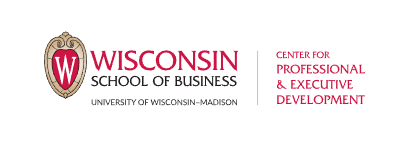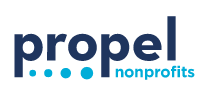This program will help you mature your project management practices to program and/or portfolio management. It includes an overview of the differences between managing an individual project, a program, and a portfolio.

The challenge in many organizations is that there is an overabundance of projects, including some with low business value, and limited resources to work on them.
Starting too many concurrent projects without any consideration to monetary and resource capacity causes individual projects to take longer than planned, resulting in higher costs and less overall throughput.
Effective project portfolio management uses business value to prioritize the best mix of projects, within resource constraints, that achieve organizational and business strategies. This also requires a strong foundation of successful planning and execution of individual projects and programs.
This program will help you mature your project management practices to program and/or portfolio management. It includes an overview of the differences between managing an individual project, a program, and a portfolio.
You will experience prioritizing projects within a program to ensure achievement of the program’s benefits. Various prioritization criteria, scoring models, and metrics to determine the right mix of projects will be shared to help you establish your organization’s portfolio.
You will learn techniques of how to assess the portfolio against resource supply. Besides prioritization, we also cover rebalancing and measurement of the portfolio, dashboard reporting, stakeholder management, and governance.
When the portfolio contains the right mix of projects, with the greatest business value to the organization, it results in optimization of resources with clear priorities.
Integrating resource capacity to the portfolio leads to increased throughput of more projects getting completed and more benefits realized. Organizations that adopt these practices create a competitive advantage opportunity.
Benefits
Achieve strategic business objectives and program benefits by prioritizing and selecting the projects that deliver the greatest business value to the organization
Develop meaningful reports that share transparency into which prioritized projects are included in the program and/or portfolio, including cost, benefits, and resource utilization
Gain better throughput across all projects through clear priorities, a clear understanding of resource capacity, and the right pacing of projects within a program or portfolio
Improve decision making within individual projects by using a program and/or portfolio context
Engage leaders within the appropriate governance structure and processes to ensure ongoing engagement and decision making for programs and portfolios
Develop strategies to gain alignment from stakeholders on your program, portfolio, or your plans to mature any aspect of project, program, or portfolio management within your organization
Who Should Attend
Experienced project managers who want to advance their careers
Program managers
PMO directors
CIOs
Business leaders responsible for the strategic selection of projects
For more than 75 years, the Wisconsin School of Business Center for Professional & Executive Development (CPED) has helped individuals and organizations move forward through immersive, hands-on professional development programs and custom development solutions.
We work alongside individuals and organizations to deeply understand their needs so that together we can find the right blend of coaching, consulting, assessments, and development programs that drive sustainable change.
Our Shared Vision
Any organization in the midst of a business transformation and any person in the process of a professional transition benefits from a lifelong relationship with the Center for Professional & Executive Development.
Our Noble Why
Helping Organizations Move Forward
Fostering individual and organizational growth
Providing relevant business learning products and services
Nurturing professional communities
Our Shared Core Values
Authenticity
Partnership
Desire to Delight
Ownership
Curiosity
Our Commitment to Diversity, Equity, And Inclusion
Creating a Culture of Diversity, Equity, and Inclusion
We strive to blend diverse backgrounds and perspectives while fostering a culture of belonging that positively impacts our team, partners, and communities. We will live these values through:
Representation of different identities, abilities, experiences, and perceptions
An environment where everyone has what they need to engage and succeed
Fostering opportunities for all people and ideas to be heard

Budgeting is more than entering numbers into a spreadsheet. Learn how to create your budget (your playbook) to become more impactful to those you serve.

In this section, we cover the basic aspects of budgeting and how budgeting benefits your progress toward attaining your desired lifestyle and reaching your financial goals.

PMP (Project Management Professional) certification training courses are designed to help individuals prepare for the PMP exam, a globally recognized credential for project managers. These courses provide the knowledge and skills required to manage and lead projects effectively, according to best p...

Unless you expect your organization to be stable in the short, medium and long term, you need to understand how to create long-term balance sheet and cash flow projections. Growing organizations must know whether they will have the resources to execute their business plan.

Budgets are the foundation of nonprofit finance and are vital to your organization’s strategic planning and management. Budgeting can seem overwhelming, but it doesn’t have to be.
© 2025 coursetakers.com All Rights Reserved. Terms and Conditions of use | Privacy Policy